The Ball Aluminum Cup® Announces Installation of a Cycle Reverse Vending Machine (RVM) at Copper Mountain Resort
BROOMFIELD, CO, March 14, 2024 – PRNewswire – Ball Aluminum Cups® (NYSE: BALL), Copper Mountain Resort and the POWDR Adventure Lifestyle Corporation today announced the installation of a Reverse Vending Machine (RVM) at Jack’s Slopeside Grill to increase aluminum recycling in the mountain town. The machine was installed in February 2024 and will be available for the duration of the season through April 2024.
Ball Corporation, a leading global provider of sustainable aluminum beverage packaging, worked with leading recycling data collection provider Recycle Track Systems ® (RTS) to install an RVM powered by RTS’s Cycle™ platform. The RVM is an essential component of Copper Mountain’s broader Play Forever commitment to protect the environment and support the mountain town community. Together, the environmental allies aim to incentivize increased recycling rates at one of the most popular ski resorts in Colorado and educate consumers about the benefits of using aluminum. Guests can insert their Ball Aluminum Cup®, aluminum can or aluminum bottle into the front of the machine, which then uses a conveyor belt to scan, crush and sort the aluminum packaging. Once the packaging is sorted, users will have the opportunity to scan a QR code and may be surprised with Play Forever merchandise. 
“Installing the reverse vending machine at Copper Mountain Resort is an incredible opportunity to incentivize recycling and educate consumers about aluminum’s sustainable properties to help protect one of Colorado’s beloved mountain towns,” Ball Aluminum Cups® Vice President of Commercial Michelle Fick said. “At Ball, we recognize the power of ski resorts and other outdoor adventure centers to drive change and believe interacting with the RVM will encourage guests to make more sustainable everyday choices while enhancing their experience at the resort.”
The Cycle™-powered RVM installation will aid Copper Mountain Resort’s existing waste diversion efforts. At the end of the season, the Cycle™-powered RVM will be able to provide metrics on the quantity, type and mass of aluminum recycled.
“At Copper Mountain Resort, we’re excited to reinforce our commitment to sustainability with the introduction of this reverse vending machine. In collaboration with partners like Ball and Recycle Track Systems, we’re revolutionizing recycling practices and engaging our community in a meaningful way,” said Jeff Grasser, Copper Mountain Senior Resort Operations and Sustainability Manager. “Together, through initiatives like this, we aim to inspire and reward participants, fostering a collective passion for a more sustainable future.”
“RTS is excited to enhance our collaboration with Ball Aluminum Cup® at Copper Mountain, bringing our Cycle Reverse Vending Machines to the forefront of eco-innovation,” Recycle Track Systems® CEO Gregory Lettieri said. “This partnership is a testament to our mutual dedication to the environment and making recycling an engaging and meaningful activity. Beyond just reducing waste, we’re fostering a sense of environmental stewardship among visitors, showcasing the real-world impact of our collective efforts. It’s a step towards redefining environmental responsibility, blending sustainability seamlessly with the great outdoors.”
Infinitely recyclable and economically valuable, aluminum is the most sustainable beverage packaging material, and like aluminum cans, aluminum cups can be easily recycled and aluminum cans, cups and bottles can be recycled and back on a store shelf in about 60 days. The Ball Aluminum Cup® is now composed of 90 percent recycled content, the highest recycled content rate of any beverage packaging in its category and is available in 5 different sizes. In addition to its sustainability and recycling strengths, the aluminum cup is lightweight, sturdy, cool to the touch and provides an elevated drinking experience.
For more information about Ball Aluminum Cups®, please visit Ball’s website. To learn about RTS’s Cycle™ Reverse Vending Machines please visit RTS’s website.
About Ball Corporation
Ball Corporation supplies innovative, sustainable aluminum packaging solutions for beverage, personal care and household products customers. Ball Corporation employs 16,000 people worldwide (excluding divested aerospace staff) and reported 2023 net sales of $14.03 billion. For more information, visit www.ball.com, or connect with us on Facebook or Twitter.
About Copper Mountain Resort
Located just 75 miles west of Denver, Colo., Copper Mountain, the Athlete’s Mountain, operates on National Forest Land and offers an experience that inspires adventure, elevates ambition and empowers progression. During the winter, Copper’s world class naturally divided terrain provides skiers and riders access to over 2,500 acres of high alpine adventure that’s designed to challenge, inspire and empower every type of athlete. Each summer, the mountain transforms into a progression playground for hikers, mountain bikers and outdoor enthusiasts. Three centralized pedestrian villages provide a vibrant atmosphere complete with slope-side lodging, dining, shopping and activities. Copper Mountain is home to Woodward Copper and the Stifel U.S. Ski Team Speed Center which facilitate year-round training for every level of athlete. Copper is the Official Training Center for U.S. Ski & Snowboard athletes leading up to the Olympic Winter Games Milano Cortina 2026. Copper Mountain is part of the POWDR Adventure Lifestyle Co. portfolio, and an Ikon Pass partner. POWDR is a family-owned adventure lifestyle company (TM) that believes there is nothing better for your soul than to spend time with the people you love, doing the things you love.
About POWDR Adventure Lifestyle Company
POWDR is an adventure lifestyle company that inspires every human being with cool experiences in awesome places. POWDR’s awesome places include Copper Mountain and Eldora Mountain Resort in Colorado; Killington and Pico Mountain in Vermont; Boreal Mountain Resort and Soda Springs in the Lake Tahoe region of California; Mt. Bachelor in Oregon; Snowbird in Utah; and SilverStar Mountain Resort in British Columbia, Canada. POWDR also empowers and inspires the next generation of action sports enthusiasts through summer camps, mountain experiences, and mountain centers under the Woodward brand that incorporate dynamic programming and innovative environments: Woodward Park City, Woodward PA, Woodward Copper in Colorado, Woodward Tahoe, Woodward West in Stallion Springs, CA. POWDR fuels a balanced life full of adventure through a collection of experiences from the mountains to the valleys. Sun Country Tours in Oregon is POWDR’s river rafting outfitter and Powderbird, based out of Snowbird in Utah, is POWDR’s heli-adventure operator. POWDR is headquartered in Park City, Utah. For more information, please visit www.POWDR.com.
About RTS
RTS Holding, Inc., together with its subsidiaries, including Recycle Track Systems, Inc. (collectively, “RTS”) combines technology with high-touch service to make waste disposal easier, smarter, and more responsible. From on-demand removal to fully integrated waste management solutions, RTS help companies and municipalities easily track and optimize their pickups. Using insights from collected data and AI analysis, RTS empowers clients with visibility into their waste habits and provides tangible figures on their climate impact to improve their waste and recycling practices.
Forward-Looking Statements
This release contains “forward-looking” statements concerning future events and financial performance. Words such as “expects,” “anticipates,” “estimates,” “believes,” and similar expressions typically identify forward looking statements, which are generally any statements other than statements of historical fact. Such statements are based on current expectations or views of the future and are subject to risks and uncertainties, which could cause actual results or events to differ materially from those expressed or implied. You should therefore not place undue reliance upon any forward-looking statements, and they should be read in conjunction with, and qualified in their entirety by, the cautionary statements referenced below. Ball undertakes no obligation to publicly update or revise any forward-looking statements, whether as a result of new information, future events or otherwise. Key factors, risks and uncertainties that could cause actual outcomes and results to be different are summarized in filings with the Securities and Exchange Commission, including Exhibit 99 in Ball’s Form 10-K, which are available on Ball’s website and at www.sec.gov. Additional factors that might affect: a) Ball’s packaging segments include product capacity, supply, and demand constraints and fluctuations and changes in consumption patterns; availability/cost of raw materials, equipment, and logistics; competitive packaging, pricing and substitution; changes in climate and weather and related events such as drought, wildfires, storms, hurricanes, tornadoes and floods; footprint adjustments and other manufacturing changes, including the startup of new facilities and lines; failure to achieve synergies, productivity improvements or cost reductions; unfavorable mandatory deposit or packaging laws; customer and supplier consolidation; power and supply chain interruptions; changes in major customer or supplier contracts or loss of a major customer or supplier; inability to pass through increased costs; war, political instability and sanctions, including relating to the situation in Russia and Ukraine and its impact on Ball’s supply chain and its ability to operate in Europe, the Middle East and Africa regions generally; changes in foreign exchange or tax rates; and tariffs, trade actions, or other governmental actions, including business restrictions and orders affecting goods produced by Ball or in its supply chain, including imported raw materials; b) Ball’s aerospace segment include funding, authorization, availability and returns of government and commercial contracts; and delays, extensions and technical uncertainties affecting segment contracts; failure to obtain, or delays in obtaining, required regulatory approvals or clearances for the proposed transaction; any failure by the parties to satisfy any of the other conditions to the proposed transaction; the possibility that the proposed transaction is ultimately not consummated; potential adverse effects of the announcement or results of the proposed transaction on the ability to develop and maintain relationships with personnel and customers, suppliers and others with whom it does business or otherwise on the business, financial condition, results of operations and financial performance; risks related to diversion of management’s attention from ongoing business operations due to the proposed transaction; the impact of the proposed transaction on the ability to retain and hire key personnel; and c) Ball as a whole include those listed above plus: the extent to which sustainability-related opportunities arise and can be capitalized upon; changes in senior management, succession, and the ability to attract and retain skilled labor; regulatory actions or issues including those related to tax, environmental, social and governance reporting, competition, environmental, health and workplace safety, including U.S. Federal Drug Administration and other actions or public concerns affecting products filled in Ball’s containers, or chemicals or substances used in raw materials or in the manufacturing process; technological developments and innovations; the ability to manage cyber threats; litigation; strikes; disease; pandemic; labor cost changes; inflation; rates of return on assets of Ball’s defined benefit retirement plans; pension changes; uncertainties surrounding geopolitical events and governmental policies, including policies, orders, and actions related to COVID-19; reduced cash flow; interest rates affecting Ball’s debt; successful or unsuccessful joint ventures, acquisitions and divestitures, and their effects on Ball’s operating results and business generally; and potential adverse effects of the announcement or results of the proposed transaction on the market price of Ball Corporation’s common stock.
SOURCE Ball Corporation

